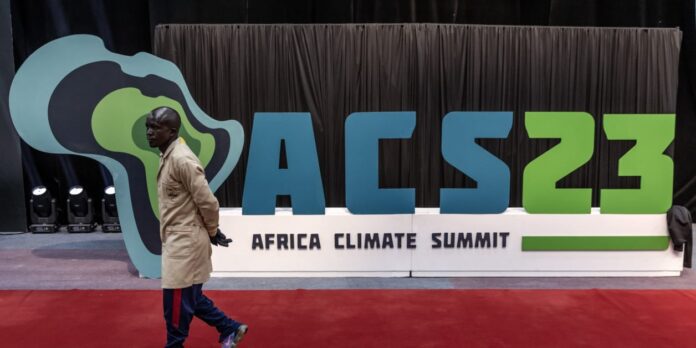This September 4th marks the start of a historic climate summit that aims to make the continent an emerging powerhouse in renewable energy and calls for international financial assistance to unlock its potential.
This first African Climate Summit kicks off the busiest four months of the year for international climate negotiations, which will culminate in a battle over the end of fossil fuels at COP28, in Dubai, between the end of November and the beginning of December.
During three days, leaders and officials from Africa and elsewhere, including UN chief António Guterres, will be welcomed in the Kenyan capital by President William Ruto. He hopes that this summit will allow the continent to find a common language on development and climate, in order to “propose African solutions” at COP28.
“Essential part of the solution”
A success in Nairobi around a shared vision on Africa's green development would give momentum to several important international meetings ahead of COP28, first the G20 summit in India and the United Nations General Assembly in September, then in October the annual meeting of the World Bank and the International Monetary Fund (IMF) in Marrakesh.
According to Joseph Nganga, appointed by William Ruto to chair the summit, the conference should demonstrate that “Africa is not just a victim, but a dynamic continent with solutions for the world”. “We have the power to respond to this crisis (…) Africa represents an opportunity for world we will work together for mutual benefits,” he said.
A draft “Nairobi Declaration” consulted by AFP, but still under negotiation, highlights Africa’s “unique potential to be an essential part of the solution”. The document cites the region's vast renewable energy potential, its young workforce and its natural assets, including 40% of the world's reserves of cobalt, manganese and platinum, essential for batteries and hydrogen.
But the challenges are enormous for a continent where around 500 million people do not have access to electricity. And African leaders continue to highlight the considerable financial obstacles. Africa, which is home to 60% of the best solar energy potential in the world, however, only has an installed capacity similar to that of Belgium, the Kenyan president and the head of the International Energy Agency (IEA) recently highlighted. In particular: only 3% of international investments in the energy transition reach Africa, they have declared.
(With AFP)

